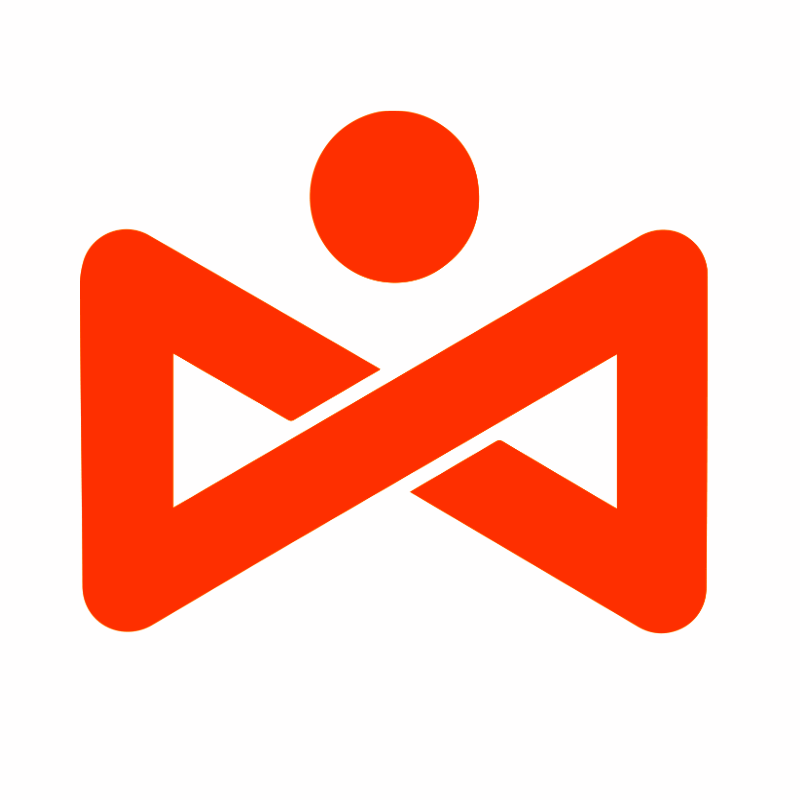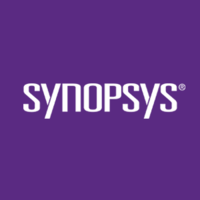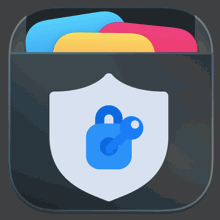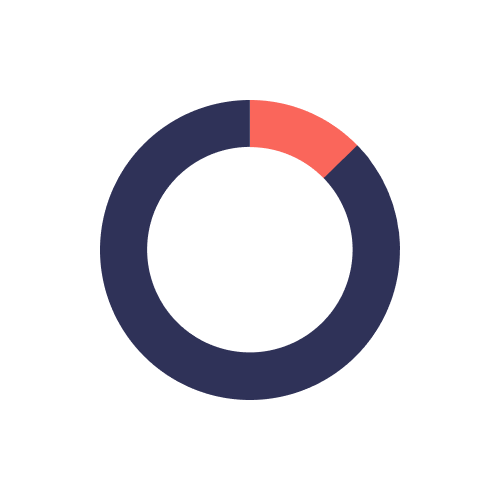Description

Kaspersky

Xygeni
Comprehensive Overview: Kaspersky vs Xygeni
As of my last update in October 2023, I do not have information on a product or company by the name "Xygeni." Therefore, I can only provide information regarding Kaspersky. If "Xygeni" is a new or niche player in the cybersecurity market, it might not be widely recognized or documented yet, or it may be a typographical error or misinterpretation of another product or brand. If you have more details or can correct the name, please feel free to provide that information. Meanwhile, here's a comprehensive overview of Kaspersky:
Kaspersky
a) Primary Functions and Target Markets
Primary Functions:
- Antivirus and Anti-malware Protection: Kaspersky is renowned for its extensive virus and malware detection capabilities, often recognized as one of the top players in providing robust antivirus protection.
- Internet Security: It offers advanced tools and features to protect users from web-based threats, including phishing and malicious websites.
- Firewall and Network Defense: Provides tools to safeguard endpoints and networks from intrusion and unauthorized access.
- Password Management: The software also includes password management tools to help users encrypt and manage their login credentials securely.
- Parental Controls: Offers features to help parents manage their children's online activities and screen time.
- Privacy Tools: Includes a variety of privacy protection tools, such as VPN services to safeguard user data.
Target Markets:
- Individual Consumers: Personal users seeking to protect their computers, smartphones, and tablets from cyber threats.
- Small and Medium Enterprises (SMEs): Businesses needing scalable security solutions to protect their network and endpoints from cyber threats.
- Large Enterprises: Kaspersky provides enterprise-level solutions for advanced threat detection and protection.
- Government and Public Sector: Participates in securing critical infrastructure and government data against cyber threats.
b) Market Share and User Base
- Market Share: Kaspersky is typically recognized as a leading player in the global cybersecurity market. While exact market share fluctuates annually based on various factors, including innovations and market competition, Kaspersky ranks among the top companies like Norton, McAfee, and Avast.
- User Base: Kaspersky is known to have a significant global user base, serving millions of individual users and numerous enterprises around the world. However, precise numbers can vary, and they are generally subject to change based on company reports and third-party market analysis.
c) Key Differentiating Factors
- Advanced Threat Intelligence: Kaspersky Lab is noted for its strong research and threat intelligence division that actively monitors and reports on emerging cybersecurity threats globally.
- Comprehensive Security Suite: Offers a broad range of features in its products, from basic antivirus to complex, multi-layered security solutions for businesses.
- Global Presence with Local Adaptation: While it operates worldwide, Kaspersky has regional adaptations to accommodate local laws, languages, and cyber threat landscapes.
- Innovation in AI and Machine Learning: It extensively utilizes AI and machine learning to enhance its threat detection capabilities, making its solutions agile against emerging threats.
- Security Certifications and Awards: Frequently recognized by independent cybersecurity testing agencies and awarded for its performance and innovation in security technology.
If you have further information or context about "Xygeni," such as its specific niche or product offerings, I would be glad to attempt to provide more information or help further!
Contact Info

Year founded :
1997
Not Available
Not Available
Switzerland
Not Available

Year founded :
2021
Not Available
Not Available
Spain
http://www.linkedin.com/company/xygeni
Feature Similarity Breakdown: Kaspersky, Xygeni
To provide a comprehensive feature similarity breakdown for Kaspersky and Xygeni, let's examine their core features, user interfaces, and any unique features that distinguish them. Note that feature availability and user interfaces can change with software updates.
a) Core Features in Common
-
Antivirus and Anti-malware Protection:
- Both Kaspersky and Xygeni focus on protecting devices from viruses, malware, ransomware, and other cyber threats through real-time scanning and threat detection.
-
Firewall Protection:
- Offers network protection by monitoring incoming and outgoing traffic to block suspicious activities.
-
Web and Email Protection:
- Includes protections that safeguard users from phishing attacks, malicious websites, and potentially harmful email attachments or links.
-
Data Encryption and Secure Backup:
- Features to encrypt sensitive data and allow secure backups to prevent data loss or theft.
-
Parental Controls:
- Tools to help manage and restrict children's online activities for safer internet usage.
-
Security Management Dashboard:
- Provides a centralized interface for managing security settings, threat alerts, and system status.
b) User Interfaces Comparison
-
Kaspersky:
- Known for its intuitive and user-friendly interface with a clean and straightforward layout. Users often highlight the ease of navigating through different features via a central dashboard. The design is usually minimalist in style, with easy-to-understand icons and quick access to common tasks like scans and updates.
-
Xygeni:
- Xygeni might offer a more specialized or technical interface tailored towards enterprise solutions, which may include more detailed analytical data and customizable dashboard options. The interface could be less simplified compared to Kaspersky, catering to IT professionals and security specialists with detailed insights and controls.
c) Unique Features
-
Kaspersky:
- Game Mode: Temporarily suspends notifications and updates to ensure uninterrupted gaming sessions.
- VPN Service: Offers a secure VPN to protect online privacy and encrypt internet connections.
- Password Manager: Manages and secures passwords across various devices.
-
Xygeni:
- AI-Driven Threat Intelligence: Uses artificial intelligence and machine learning to predict and preempt potential threats with advanced analytics.
- Enterprise-level Compliance Tools: Tools specifically designed to help organizations comply with various industry regulations and standards.
- Automated Response Systems: Capabilities to automatically respond to certain threats without requiring user intervention, minimizing security response times.
Conclusion
While Kaspersky and Xygeni share several core cybersecurity features, their offerings and user experience can differ based on target audiences—Kaspersky often focuses more on consumer-friendly aspects, whereas Xygeni may cater to the needs of enterprise environments with advanced management options and compliance tools. Unique features like Kaspersky's gamer-centric tools and Xygeni's AI-driven intelligence clearly demonstrate their varied focuses and strengths in the cybersecurity domain.
Features

Not Available

Not Available
Best Fit Use Cases: Kaspersky, Xygeni
To address your question about Kaspersky and Xygeni, it is important to look at how each of these security solutions functions and where they are best utilized.
Kaspersky
a) Best Fit Use Cases for Kaspersky:
-
Small to Medium Enterprises (SMEs): Kaspersky offers a range of security solutions that are particularly suited for small to medium-sized businesses that require comprehensive protection without a complex setup. Their products cover endpoint protection, data security, and threat intelligence, making them a viable option for businesses that don’t have extensive IT resources.
-
Enterprises Facing Advanced Threats: For larger enterprises dealing with complex and advanced cyber threats, Kaspersky provides robust threat intelligence and security solutions that can be integrated into their existing security infrastructure. Their focus on advanced threat protection, including endpoint detection and response (EDR), makes them suitable for enterprises with significant security challenges.
-
Industries with High Regulatory Requirements: Industries such as healthcare and finance, which have stringent regulatory compliance requirements, can benefit from Kaspersky’s solutions due to their comprehensive security features and data protection capabilities that help meet compliance standards.
-
Home Offices and Remote Work: Kaspersky's consumer products are ideal for individual users and home offices. They offer easy-to-use, effective protection that secures home networks and remote work environments against threats.
Xygeni
b) Preferred Scenarios for Xygeni:
-
Cloud-First Organizations: Xygeni is especially tailored for businesses that have a significant cloud footprint. Its solutions excel in providing security measures that protect cloud-native applications across diverse environments.
-
Agile Development and DevOps Teams: Organizations that prioritize rapid software development and deployment may find Xygeni's security solutions beneficial. By integrating security measures into the continuous integration and continuous deployment (CI/CD) pipeline, it facilitates DevSecOps practices, aligning with organizations seeking to streamline and secure their software delivery processes.
-
Startups and Tech Firms: Tech startups and firms that require scalable and flexible security options while they grow their operations often find Xygeni an attractive choice. The ability to easily scale security operations in line with business growth is a significant advantage.
-
Industries Focused on Digital Transformation: Companies undergoing digital transformation projects, especially in sectors like technology, retail, and media, may harness the strengths of Xygeni's solutions to secure their evolving digital assets without hindering innovation and agility.
d) Catering to Different Industry Verticals or Company Sizes:
Kaspersky:
- Industry Verticals: Well-suited to regulated sectors like healthcare and finance due to robust compliance features.
- Company Sizes: Effective for SMBs and large enterprises, offering scalable solutions that cater to expanding security needs across multiple endpoint devices.
Xygeni:
- Industry Verticals: Ideal for technology-driven sectors and those focusing on cloud adoption and digital innovation.
- Company Sizes: Startups and mid-sized businesses benefit from Xygeni’s scalable structure, while enterprises focused on agile methodologies may prefer its seamless integration with development practices.
In summary, Kaspersky tends to suit more traditional organizations needing comprehensive endpoint security, whereas Xygeni is well-aligned with modern, cloud-centric businesses prioritizing speed and agility in their security methodology.
Pricing

Pricing Not Available

Pricing Not Available
Metrics History
Metrics History
Comparing undefined across companies
Conclusion & Final Verdict: Kaspersky vs Xygeni
To provide a comprehensive conclusion and verdict regarding Kaspersky and Xygeni, it's essential to take into account their respective strengths, weaknesses, and the overall value they offer to users. Here’s an analysis considering the questions posed:
a) Considering all factors, which product offers the best overall value?
Kaspersky is often renowned for its robust security features, comprehensive suite of tools, and consistent performance across various independent testing labs. It provides a strong value proposition, particularly for users who prioritize comprehensive protection and are looking for a trusted and established brand in the cybersecurity space.
Xygeni, on the other hand, might cater to niche markets or specific organizational needs, possibly offering innovative features or integrations that appeal to certain segments. If Xygeni focuses on a specialized threat model or unique environment (e.g., small businesses or enterprise-level solutions), it can offer excellent value within those parameters.
Verdict: Generally, Kaspersky offers the best overall value for most users, given its broad market presence, reliable protection, and feature-rich offerings. However, Xygeni could be the better option for specific user needs that align with their unique features.
b) What are the pros and cons of choosing each of these products?
Kaspersky:
- Pros:
- Comprehensive security features, including protection against malware, ransomware, phishing, and other threats.
- Reputable and well-established brand with a high level of trust and reliability.
- Consistently high scores in third-party security software evaluations and tests.
- User-friendly interface and seamless experience across devices.
- Regular updates and a proactive approach to emerging threats.
- Cons:
- Concerns related to privacy and data handling, particularly from certain geographical regions, due to its Russian origins.
- Potentially higher cost compared to less comprehensive solutions.
Xygeni:
- Pros:
- May offer tailored cybersecurity solutions for specific industries or threat environments.
- Possibly innovative or unique features that cater to specific user needs.
- Could provide a more competitive pricing model for niche offerings.
- Cons:
- Lesser-known brand, which may raise questions about the extent and reliability of protection when compared to established players.
- Possibly fewer features or integrations compared to Kaspersky’s extensive suite.
- Limited testing data or third-party evaluations to confirm effectiveness.
c) Are there any specific recommendations for users trying to decide between Kaspersky vs Xygeni?
-
Identify Your Needs: Start by understanding your specific cybersecurity requirements. If you need a solution with a broad array of features and a proven track record, Kaspersky might be the way to go. If your needs are more niche or industry-specific, investigate what Xygeni offers.
-
Cost vs Features Analysis: Consider what features are essential for your use case and whether the cost of each product aligns with your budget. Kaspersky may offer more features for a higher price, whereas Xygeni might be more budget-friendly but potentially with fewer features.
-
Security and Privacy Concerns: Evaluate your comfort level regarding data privacy and trust. If potential geopolitical concerns are significant for you, consider them while assessing Kaspersky.
-
Trial and Support: Utilize free trials and assess customer support services for both options. The user experience and customer support responsiveness can be decisive factors.
-
Community Feedback and Reviews: Look for user reviews and expert feedback on recent performance and customer satisfaction related to each product.
In conclusion, the decision between Kaspersky and Xygeni should fundamentally rest on individual user needs, desired features, budget constraints, and any privacy considerations. Kaspersky offers broader value for a general audience due to its extensive feature set and established reputation, but Xygeni could present a compelling case for users with specific requirements.
Add to compare
Add similar companies




